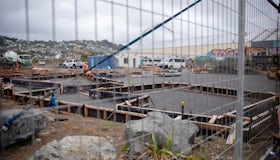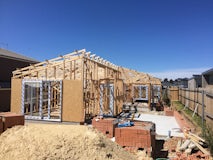What April 1 means for investors, more rate rises possible, and property management regulations
Too long; didn't read? Here're this week's TLDRs...
The current state of things – A breakdown by Tony Alexander
Read the article
Core Logic February Housing Chart Pack highlights
Read the article
Rent prices expected to rise through 2024
Read the article
Rising rents contributing to hardship, while mortgage holders take biggest hit
Read the article
ANZ: Housing market is stagnant and more interest rate rises are possible
Read the article
Home loan affordability report
Read the article
Property management regulation takes centre stage
Read the article
Apartment mogul blasts ‘rapacious money grubbing’ developers
Read the article
Tony Alexander: Why April 1 will be an important date for house prices
Read the article
“There’s a real threat of a cash rate hike”
Read the article
Can AI replace your mortgage advisor?
Read the article
Housing shortage hurting businesses
Read the article
Property buyers losing deposits
Read the article



